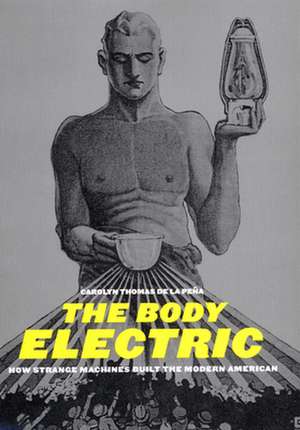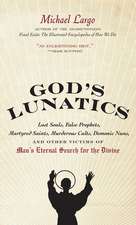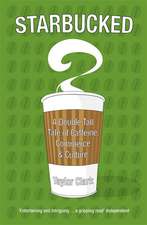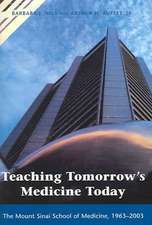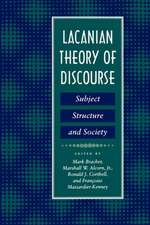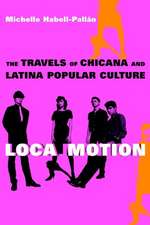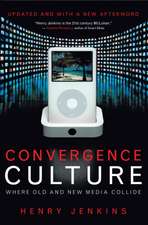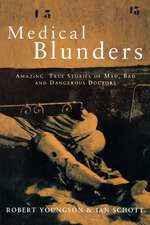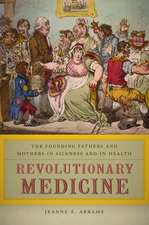The Body Electric – How Strange Machines Built the Modern American
Autor Carolyn Thomas Penaen Limba Engleză Hardback – 30 apr 2003
| Toate formatele și edițiile | Preț | Express |
|---|---|---|
| Paperback (1) | 246.26 lei 6-8 săpt. | |
| MI – New York University – 31 mar 2005 | 246.26 lei 6-8 săpt. | |
| Hardback (1) | 529.69 lei 6-8 săpt. | |
| MI – New York University – 30 apr 2003 | 529.69 lei 6-8 săpt. |
Preț: 529.69 lei
Preț vechi: 687.92 lei
-23% Nou
Puncte Express: 795
Preț estimativ în valută:
101.37€ • 105.44$ • 83.69£
101.37€ • 105.44$ • 83.69£
Carte tipărită la comandă
Livrare economică 15-29 aprilie
Preluare comenzi: 021 569.72.76
Specificații
ISBN-13: 9780814719534
ISBN-10: 0814719538
Pagini: 330
Ilustrații: illustrations
Dimensiuni: 153 x 229 x 15 mm
Greutate: 0.61 kg
Ediția:New.
Editura: MI – New York University
ISBN-10: 0814719538
Pagini: 330
Ilustrații: illustrations
Dimensiuni: 153 x 229 x 15 mm
Greutate: 0.61 kg
Ediția:New.
Editura: MI – New York University
Recenzii
"Covers its subject well, provides useful context, and makes lively reading for anyone interested in the history of technology, the social context of electricity and radioactive materials, or the history of alernative medicine."Technology and Culture "Not only provides a richly detailed and suprising account of long-forgotten artifacts, but also fleshes out the longer history of some still-familiar attitudes toward health and vitality."
Journal of Social History "De la Pena's fascinating study melds social history with material culture and the history of science and technology to explain Americans' enthusiastic embrace of modern mechanization and emergent industrial culture."
CHOICE "In this engaging and well-written study Carolyn Thomas de la Pena offers a detailed cultural history of the medical-technological interface in the period 1850-1940, and in so doing tells us a great deal about how the body and its relation to modernity were conceived."
American Historical Review "Exellent. Carolyn de la Pena's superbly researched project examines how Americans in the period between 1870 and 1935 sought to supplement their physical energy through engagement with a variety of popular health technologies, including muscle-building machines: electrical invigorators, such as belts and collars: and radioactive elixirs."
American Quarterly "It's an irresistible account of fads and fascinating foibles, including electric belts and radioactive tonics."
Christian Science Monitor "Transforming archival research into sparkling prose, The Body Electric explains how Americans learned to use machines to seek health, sexual rejuvenation, and physical transformation. This innovative book is both an entertaining history of fads and foibles and a groundbreaking cultural critique of the continuing obsession with achieving physical perfection."
David E. Nye, author of Electrifying America and America as Second Creation "The Body Electric is the so-far missing puzzle piece in our nineteenth-twentieth century knowledge of the social history of the human body and technologya richly illustrated study showing two centuries of technologizing the human body against fears of weakness, enervation, sexual depletion."
Cecelia Tichi, author of Shifting Gears: Technology, Literature, Culture in Modernist America
Journal of Social History "De la Pena's fascinating study melds social history with material culture and the history of science and technology to explain Americans' enthusiastic embrace of modern mechanization and emergent industrial culture."
CHOICE "In this engaging and well-written study Carolyn Thomas de la Pena offers a detailed cultural history of the medical-technological interface in the period 1850-1940, and in so doing tells us a great deal about how the body and its relation to modernity were conceived."
American Historical Review "Exellent. Carolyn de la Pena's superbly researched project examines how Americans in the period between 1870 and 1935 sought to supplement their physical energy through engagement with a variety of popular health technologies, including muscle-building machines: electrical invigorators, such as belts and collars: and radioactive elixirs."
American Quarterly "It's an irresistible account of fads and fascinating foibles, including electric belts and radioactive tonics."
Christian Science Monitor "Transforming archival research into sparkling prose, The Body Electric explains how Americans learned to use machines to seek health, sexual rejuvenation, and physical transformation. This innovative book is both an entertaining history of fads and foibles and a groundbreaking cultural critique of the continuing obsession with achieving physical perfection."
David E. Nye, author of Electrifying America and America as Second Creation "The Body Electric is the so-far missing puzzle piece in our nineteenth-twentieth century knowledge of the social history of the human body and technologya richly illustrated study showing two centuries of technologizing the human body against fears of weakness, enervation, sexual depletion."
Cecelia Tichi, author of Shifting Gears: Technology, Literature, Culture in Modernist America
Notă biografică
Carolyn Thomas de la Pena is Assistant Professor of American Studies at the University of California at Davis.
